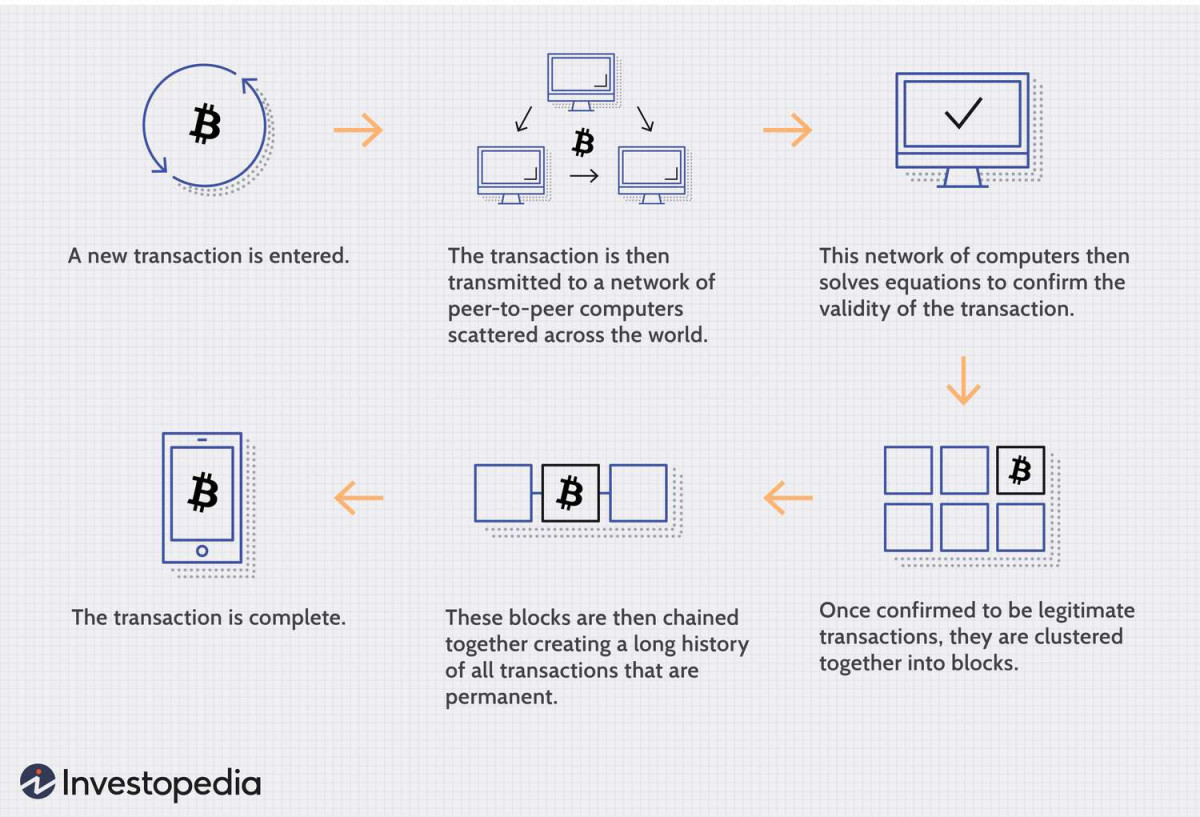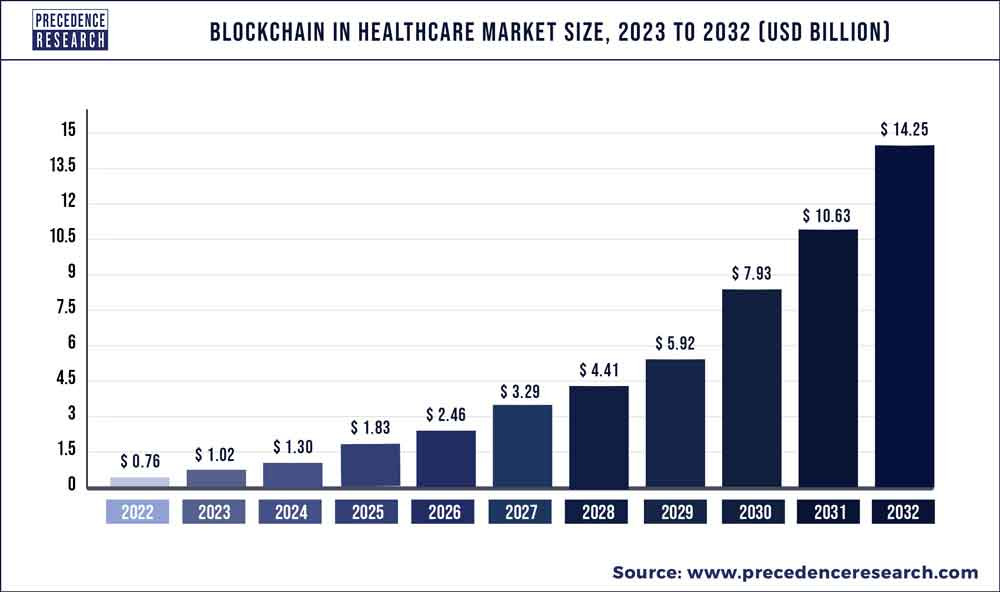Applying Blockchain in Healthcare: Elevating Privacy and Security for Patient Data Transfers
In Brief
Explore how the integration of blockchain technology is dramatically transforming the healthcare sector by boosting data privacy, safeguarding patient details, and ensuring adherence to regulations.

By now, you’ve probably encountered the term blockchain. Often associated with finance and cryptocurrencies, it might seem far removed from healthcare. However, the application of blockchain is evolving in both sectors.
Understanding the basics of blockchain can quickly lead to insights on how it might reshape data privacy within healthcare. The use of blockchain in medical fields is on the rise, and we may soon see it standard across the industry.
In this piece, we delve into the advantages of blockchain technology in healthcare and how it can protect your institution or business.
What’s blockchain?
At its core, blockchain functions like a database, but more accurately, it operates as a distributed and decentralized ledger. This means that the data is stored across various computers instead of a single central location.
Typically, blockchain operates without a central authority, maintaining a comprehensive record of all transactions and data exchanges. Once recorded, this information can't be altered or undone, which contributes to its robust security.

Photo: Investopedia
The compatibility of blockchain with medical records is clear, given the critical need for high data integrity and security.
While the initial wave of blockchain innovation primarily targeted financial services, it took several years before its applications began to emerge in sectors like healthcare.
Blockchain technology provides effective solutions for automating claim verification and managing public health, making it exceptionally valuable. healthcare From a patient's or client's perspective, blockchain addresses issues related to data sharing and ownership.
How does the implementation of blockchain technology in healthcare make a difference?
Immutability, traceability, and efficiency are just a few of blockchain's standout features. While these characteristics are sought after across various sectors, they are absolutely essential in healthcare.
Consider a situation where a patient is relocating, which necessitates the transfer of their medical records. It’s crucial that these physical documents remain protected throughout this process. Blockchain-enabled digital health frameworks ensure that patient information is shared safely and in compliance among different institutions and healthcare providers.
Laboratory results and imaging reports are particularly vulnerable to being misdirected or improperly accessed. Thus, implementing stringent security protocols and training staff who handle such sensitive information is imperative, even if temporary personnel might be involved. travel CT technicians Besides providing appropriate training for your staff, it’s vital to establish protocols such as enforcing strong password policies, restricting access to sensitive data, and utilizing secure communication channels.
Blockchain's role in healthcare extends to drug traceability, offering confidence to everyone in the supply chain, right down to the pharmacy staff, that medications are reaching the correct patients and curbing the circulation of counterfeit drugs.
As previously noted, blockchain maintains exceptional data integrity due to its immutability. Yet, the security features of blockchain projects extend far beyond this.
Security benefits of blockchain
In a blockchain network, there is no single point of failure that could be attacked; patient records are decentralized, which minimizes the risk of breaches.
Additionally, transactions and data on the blockchain are encrypted employing top-tier security protocols. Sophisticated algorithms, such as elliptic curve cryptography (ECC) and advanced encryption standards (AES), ensure that data encryption and decryption processes are not only secure but efficient as well.
Moreover, there are numerous initiatives you can implement to bolster your organization’s security. Certain healthcare institutions are investigating innovative authentication methods to reduce the likelihood of unauthorized access to both employee and patient accounts.
There are a multitude of services available that can provide insights into your organization's vulnerabilities, allowing you to adopt methods that keep your data security measures current and uphold patient confidentiality. magic links The paramount objective is to maintain the privacy of your sensitive information while allowing you to concentrate on delivering quality care.
Scenarios where blockchain emerges as a vital solution breach and attack simulation Transferring data across a nation can be daunting. Physical documents are susceptible to damage, theft, or modification. Blockchain simplifies both domestic data transfers and international exchanges.
This approach is not only practical and expedient but significantly decreases the likelihood of unauthorized parties accessing the data. Picture a prominent politician from your country traveling abroad for health reasons.
If opponents of this individual gain insight into their location, there is a heightened risk of cyberattacks targeting the healthcare institution. Given its decentralized structure, blockchain-based electronic medical records are considerably less susceptible to such threats.
Similar to transfers of patient information, blockchain systems efficiently manage the transfer of employee data while also upholding appropriate access rights.
Furthermore, blockchain effectively encrypts and stores details about each patient’s medication regimen. When facilitating prescriptions, for instance, compliance with the Health Insurance Portability and Accountability Act (HIPAA) is vital to safeguard patient health data and avert legal complications.
The introduction of the General Data Protection Regulation (GDPR) in the European Union has spurred numerous nations and businesses to prioritize data privacy. This regulation has led to the establishment of various laws globally.
These regulations are geared towards safeguarding customers, their privacy, and their data. Nonetheless, the data generated and collected by healthcare providers warrants particular vigilance. Health data is classified as protected health information (PHI), which is treated differently than standard personal data.
This distinction arises from the fact that PHI can be exploited in myriad ways beyond merely knowing an individual's name and address. Thus, blockchain represents a critical technology for ensuring the protection of PHI and maintaining regulatory compliance within your healthcare enterprise. Zepbound prescriptions While blockchain is highly compatible with the healthcare landscape, it’s crucial that employees are also trained in compliance measures. With the advent of recent regulatory changes, this can be achieved effectively. Nevertheless, compliance entails various considerations, particularly regarding who is implementing blockchain within your operations.
Compliance regulations
Compliance is one aspect, but you’ll need to stay ahead of evolving regulations as well. This may necessitate having a legal team that collaborates with your IT specialists to guarantee ongoing compliance for your blockchain network and your entire organization.
The specific compliance regulations will also vary depending on the geographical locations of your operations and your patient base.
Embracing blockchain within healthcare
If you operate a healthcare enterprise catering to distinct clients, adopting a hybrid model of blockchain and healthcare requires individuals who possess technical expertise. compliance training software This encompasses knowledge about APIs, which are essential for safeguarding healthcare data privacy and security, allowing for safe transfers of patient information between different systems. However, if APIs lack proper security measures, they could expose weaknesses, leading to potential data breaches.
APIs are integral to maintaining the integrity of healthcare data privacy and security by enabling secure data exchanges between systems. Yet, without sufficient safeguards, they can also be a weak point, exposing systems to breaches.
To mitigate risks associated with integrating blockchain into hospital operations, healthcare organizations can adopt API management solutions like Apigee, Tyk, Kong, and Mulesoft. These platforms offer robust tools aimed at securing and managing APIs, incorporating features such as access controls, encryption, and defense against threats.
When evaluating a management platform, healthcare companies should take the time to compare various options. For instance, choosing the right tools might involve analyzing factors like scalability, security provisions, and how well they integrate with existing systems to find the most suitable solution.
Obstacles faced by blockchain implementation
A graphical representation of the blockchain market in healthcare.
Currently, blockchain technology is not as prevalent in healthcare as other emerging technologies, like AI. However, a considerable number of organizations are starting to incorporate this technology to varying extents. Unfortunately, blockchain often remains associated with hype.
Nonetheless, when effectively implemented, the security advantages it offers are on par with those provided by only a handful of other technologies. Thus, a significant hurdle is recognizing blockchain’s true value and enhancing the public perception of this technology.
With numerous real-world instances of blockchain applications in healthcare, there exist multiple avenues to champion its usage. Demonstrating the positive ripple effects brought about by blockchain can certainly aid in changing perceptions. Apigee vs. Kong Another pressing challenge lies in the scarcity of professionals well-versed in both blockchain and healthcare. There are very few experts who can bridge these two fields, and their services often come at a premium.
Overall, blockchain is poised to revolutionize healthcare and enhance the privacy of patient information.

Photo: Precedence Research
Explore how blockchain technology is reshaping the healthcare sector by bolstering data privacy, safeguarding patient information, and ensuring adherence to regulations.
Revolutionizing Patient Data Handling with Blockchain in Healthcare: A Path to Enhanced Privacy and Security
FTC's Appeal to Halt Microsoft's Acquisition of Activision Fails
Date Published: November 26, 2024 at 9:30 am | Last Updated: November 26, 2024 at 9:30 am
To enhance your experience in your native language, we sometimes use an automatic translation tool. Please keep in mind that this auto-translation might not always be precise, so be sure to review it carefully.
Chances are you’ve come across the term blockchain lately. It's commonly associated with the realms of finance and cryptocurrency. While the connection between healthcare and cryptocurrencies may not be apparent, the application of blockchain technology is being adopted in both fields.
Once you delve into the core principles of blockchain, it becomes clear how this innovative technology can transform data privacy in the healthcare sector. The integration of blockchain in medical practices is gaining traction, and we could see it emerging as a standard across the industry.
This piece examines the advantages of blockchain in the healthcare domain and outlines how it can bolster the security of your institution or practice.
Disclaimer
In line with the Trust Project guidelines At its core, blockchain is a type of database, yet it’s more accurately described as a decentralized and distributed ledger. This means that data is not centralized but scattered across numerous nodes, which can include computers.







